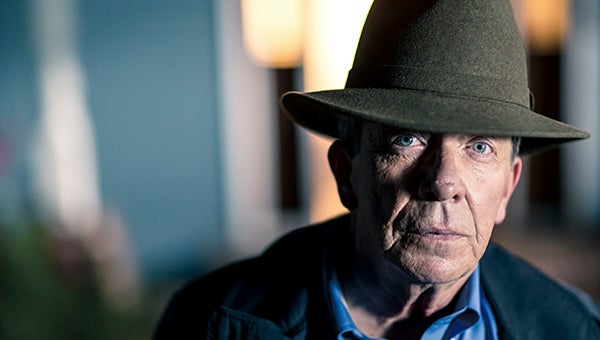‘Homicide Hunter’ lives in Suffolk
Published 7:25 pm Tuesday, September 1, 2015

Homicide Hunter Joe Kenda, pictured in a publicity photo for his Investigation Discovery show, lives in Suffolk.
Lt. Joe Kenda is used to grabbing his wife and making a quick exit from department stores whenever he spots a criminal or their family.
But these days he spends more of his time in public signing autographs and talking to fans of his television show.
The retired Colorado Springs homicide detective is the no-nonsense star of Investigation Discovery’s “Homicide Hunter,” which premiered its fifth season Aug. 18.
Since he moved to Suffolk a little over a year ago, numerous Kenda sightings have been reported around town. But Kenda can’t understand it — he just feels like a regular guy who moved to unfamiliar territory to be near his son, who is a U.S. Navy officer and plans to stay in Virginia whenever he leaves the military.
“People have been very nice, very welcoming,” Kenda said. “It helps that I have a show on television.”
The Pittsburgh native and his wife moved to Colorado Springs, his mother’s hometown, when he got into law enforcement. He spent about three years in a patrolman’s uniform before becoming a detective.
But he initially got stuck with investigating burglaries, “which I consider trivial pursuit,” he said. “If I’m going to investigate crime, I want to investigate the worst crime.”
Those days ended when he found himself at the scene of a double shooting at a convenience store. He heard other detectives suggest they shouldn’t spend a lot of time on the case because they didn’t believe it was solvable. It was a stranger-on-stranger crime, typically the most difficult to solve.
But Kenda asked for the case to reassigned to him, and the other detectives snickered at the “college boy” with a degree in political science.
It didn’t take a degree to figure out one of the victims had struggled with his attacker and torn off a bracelet with “Ingrid” engraved in an unusual manner. That bracelet led down the trail to the suspect, and Kenda brought the man into the station in handcuffs five days after the shooting.
“They put me on homicide the next day, and I stayed there for 21 years,” he said.
Kenda boasts a 92-percent solution rate in his cases. Of the 387 homicide cases assigned to him during his career, he put away the killers in 356 of them.
Of the remaining 31, “I know who did it but can’t prove it” in 17 cases, he said.
Kenda attributes his success in solving cases to his skill with interrogation.
“You don’t get there with CSI (crime scene investigation), which is bull—,” he said. “You get there with conversation. Physical evidence plays a role, but it’s not the overwhelming role people think it is.”
Kenda said he never built a theory before solving a case. He went the opposite way — letting the facts build a theory for him.
“People kill people for a reason,” he said. “Find the reason, find the person.”
The most common reasons are “money, sex and revenge — in that order, for the most part,” Kenda said.
The show came about after an interview with Diane Sawyer about one of his cases. After he had retired, a producer tracked him down (“I was almost off the grid,” Kenda says) and pitched the idea for a show.
Kenda tossed the first two letters, but his wife convinced him to call the producer when the third letter came.
The hour-long show features Kenda talking about his cases and re-enactments by actors, including one playing a younger Kenda. Family members of the victim and others involved also give their thoughts on camera.
“I have no script,” Kenda said. “I say what I like, and they take out the profanity.”
These days, “Homicide Hunter” is in 183 countries and 100 languages. Kenda has received requests for autographs from such remote locations as the tiny Mediterranean isle of Malta, where he sent autographed photos for all three people in the police department.
There’s also a podcast, and the show is featured on Hulu and YouTube as well as Investigation Discovery.
“I’m inescapable,” Kenda said. “It’s all about the fascination with murder. People are intrigued by it.”
When he’s not filming the show, Kenda volunteers with the American Investigative Society of Cold Cases, which offers help in cold cases to police departments — mostly small ones — throughout the United States.
He listed the mistakes that he sees most often from small departments as not securing the crime scene and the tendency to move too quickly. He visualizes a murder case as an imaginary spinning top.
“If you touch it in the wrong place, it will go flying off the table and you’ll never see it again,” he said.
“Homicide Hunter” airs Tuesdays at 10 p.m., and the podcast is also released on Tuesdays.
“I’m a student of human nature,” Kenda said of why he enjoys what he does. “I don’t understand people, but they interest me.”





